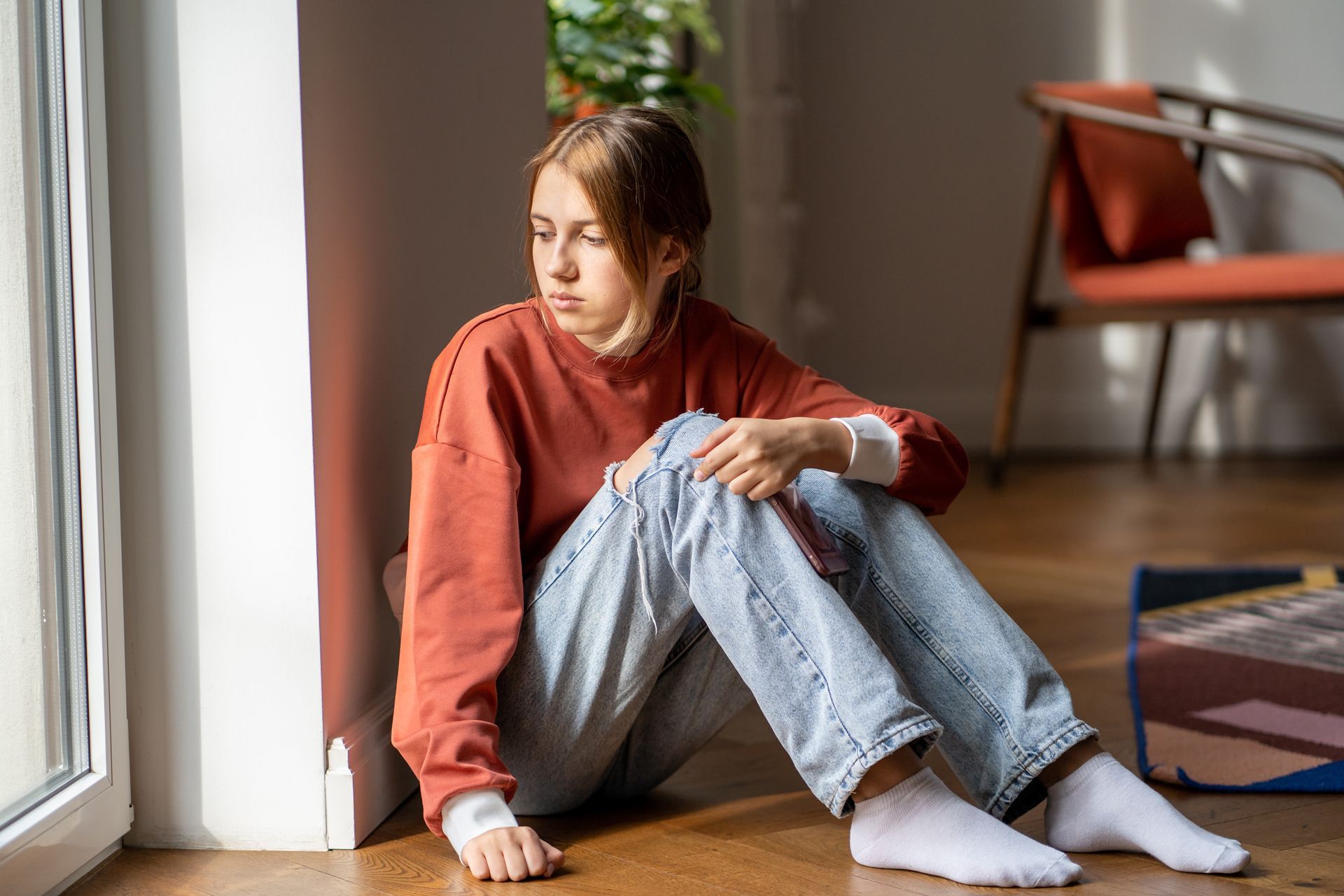Depression Treatments in Colorado
Understanding Depression
Causes, Symptoms, and Treatment Options
Depression is a mental health disorder characterized by persistent sadness, hopelessness, and a lack of interest or pleasure in activities that were once enjoyed. Depression can also cause physical symptoms such as fatigue, changes in appetite and sleep patterns, and difficulty concentrating.
Depression can be caused by genetic, biological, environmental, and psychological factors. Some common triggers include stress, traumatic events, relationship problems, or physical illness. It is a treatable condition, and several effective treatment forms are available, including medication, therapy, and lifestyle changes. It is one of our treatment specialities here at John Maret Counseling, so we hope you'll contact us for help.
Help is at hand
Don't let depression hold you back. At John Maret Counseling, we offer online and offline counseling that helps people to overcome limiting beliefs and behaviors and step into a full life free from limitation and suffering. If you don't do anything, your life will only get worse. Your self-esteem and confidence will take a further knock, thus affecting your relationships, work, personal life, and overall quality of life.
It's not necessary for that to occur, though. Counseling and therapy may help you feel better, but only if you reach out. Even if it feels like the situation is too overwhelming or things are getting worse, there is always hope. Talking to a therapist or counselor can help you address the issues causing your distress and help you get back on the path to feeling better.
People who are depressed can benefit greatly from therapy, from the structure of scheduling regular therapy sessions to the calming sensation of being around a counselor with a regulated nervous system. The counselor can provide a non-judgmental and supportive environment, allowing the person to explore their feelings without feeling ashamed or uncomfortable. With this, the person can reframe their experience and develop new ways of looking at themselves, relationships, and life.
Get in touch with us today and start your journey to feeling better. We'll hold your hand as you go through the tunnel of hopelessness to the light of hope using an array of clinical and holistic tools. If you're fed up with repeating the same negative patterns over and over, our online depression and anxiety treatments can help. You deserve to thrive and experience genuine connection and fulfillment in your life.
Depression can affect people in different ways
That is why no two people have the same symptoms, which can vary in severity, frequency, and duration.
However, some common symptoms of depression include:
- Persistent feelings of sadness, hopelessness, or emptiness. The weight of hopelessness can get so heavy that depression sufferers often struggle to get out of bed.
- Loss of interest or pleasure in activities that were once a source of joy for the individual. This could be going to the movies, interacting with others, or visiting certain places.
- Changes in appetite and sleep patterns, including overeating or loss of appetite and difficulty sleeping or sleeping too much.
- Fatigue or loss of energy. One often feels lethargic even after a good night's sleep or exercise. Of course, diet could cause some of these symptoms, but once that has been solved, it is important to consider depression as a possible cause.
- Difficulty concentrating, making decisions, or remembering things.
- Feelings of worthlessness, guilt, or hopelessness. While feelings of guilt are often associated with an event, guilt as a symptom of depression often has no cause and cannot be pinned down to one particular event or circumstance.
- Physical symptoms, such as headaches and digestive problems.
- Thoughts of suicide or self-harm.
It's important to note that everyone experiences these symptoms differently, and not everyone with depression will have all of these symptoms. However, if you or someone you know is experiencing symptoms of depression, it is important to seek help from a mental health professional. Remember that depression is not a sign of weakness or a personal failing, and seeking help from a professional like John Maret Counseling is a strength.
Depression - Risk Factors
Several factors can increase the risk of developing depression. Some of the most common risk factors include:
Genetics
Depression can run in the family, and a person's genetic makeup can make them more susceptible to the conditions. Of course, a genetic disposition to depression does not mean a death sentence, and one can still live a life of freedom, joy, and well-being despite their genetic makeup. However, awareness of the possibility of a genetic predisposition to depression can empower one to take proactive action toward better health.
Life events
Traumatic events such as the death of a loved one, divorce, or job loss can trigger depression.
Chronic illness or pain
Chronic physical health conditions and chronic pain can increase the risk of depression.
Substance abuse
Substance abuse, especially alcohol abuse, is a common risk factor for depression.
Childhood trauma
Childhood abuse, neglect, or other traumatic experiences can increase the risk of depression later in life.
Personality
People with certain personality traits, such as low self-esteem or a tendency towards negative thinking, may be at greater risk of depression.
Family history
A family history of depression can increase a person's risk of developing the condition.
It's important to note that depression can occur even without these risk factors, and having one or more of these factors does not guarantee that a person will develop depression. However, understanding the risk factors for depression can help individuals and their loved ones be proactive about seeking support and treatment if needed.

